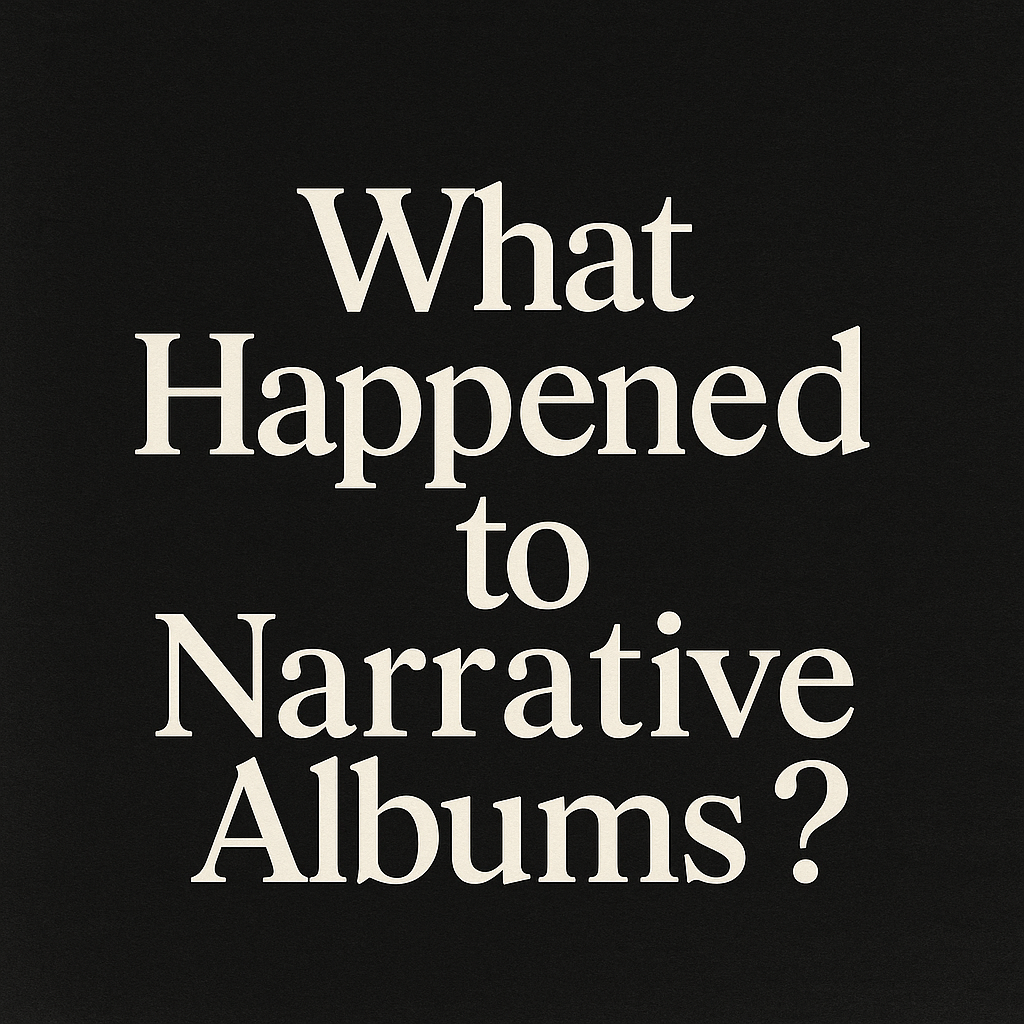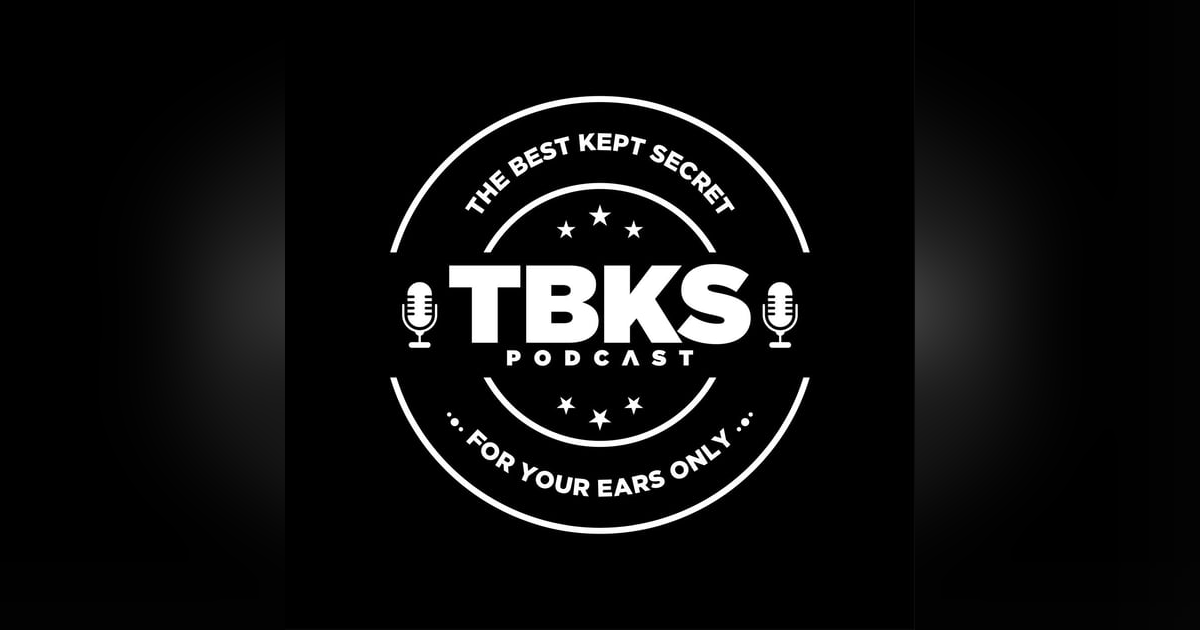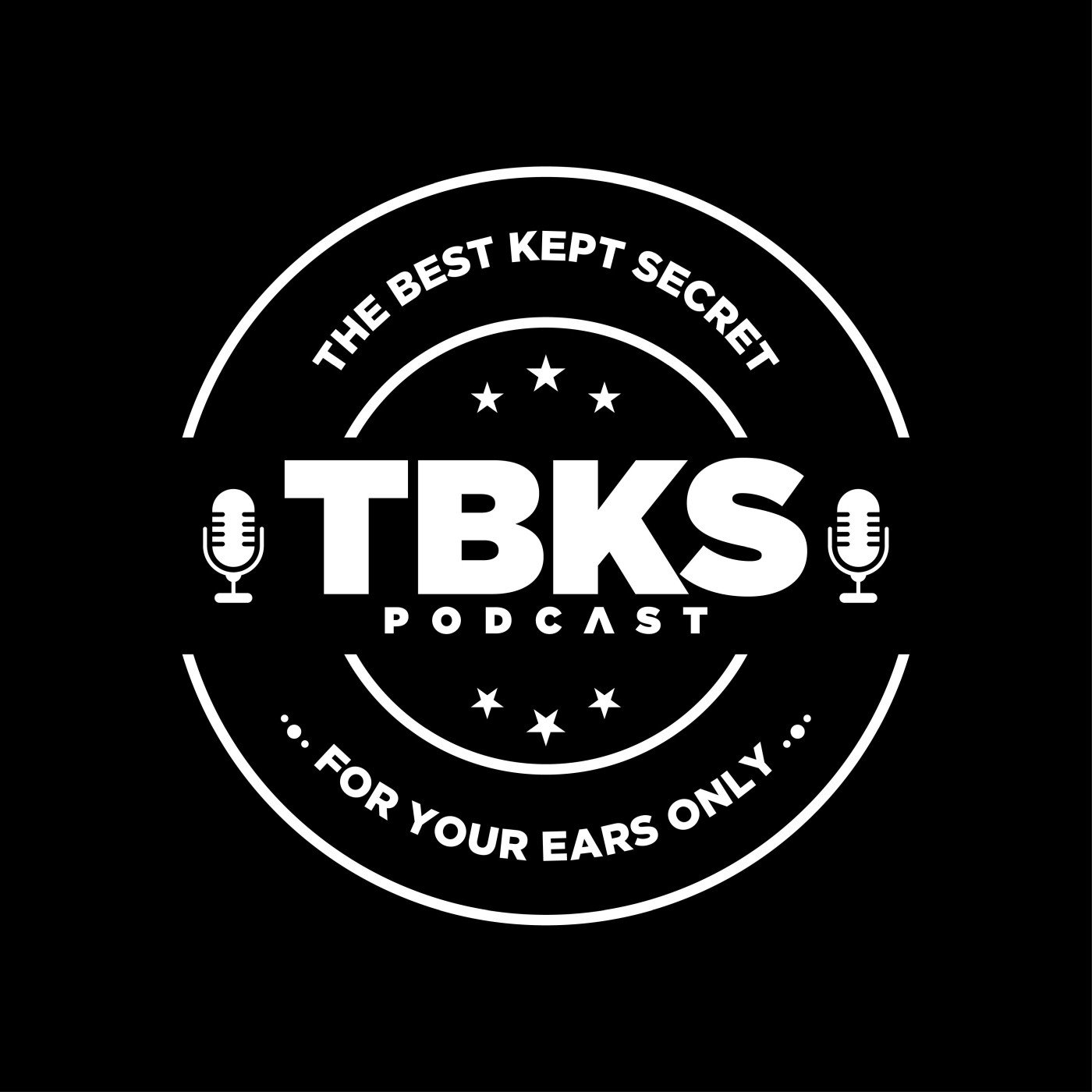What Happened to Narrative Albums? Reclaiming Ritual in the Age of Streaming

There was a moment during After Hours when it stopped feeling like we were just listening to The Weeknd. It was like we were watching a character unravel right in front of us. The blood on his face, the broken nose, the vacant stare… it wasn’t just Abel Tesfaye releasing music. He was living out a collapse in real time. The stage appearances, the music videos, the prosthetics, the whole look. It was performance art stretched across an entire era.
Then came Dawn FM. Suddenly we were tuning into this surreal, almost ghostly radio broadcast from the afterlife. A dead host guiding the character through limbo, asking questions that cut deep. And now Hurry Up Tomorrow brings the curtain down. The Weeknd persona dies, Abel is reborn, and just like that, the trilogy is complete. A whole arc. A beginning, middle, and end.
And here’s the thing. In a world where most of us skim through everything, this project made you stay put. You weren’t just hearing songs, you were inside a psychological movie as it played out. That level of immersion doesn’t come around often anymore.
It used to. There was a time when we treated albums the way we treat great films, as full experiences. Think about Kendrick Lamar’s To Pimp a Butterfly, that sprawling jazz-infused meditation on race, self-worth, and survival. Or my personal favourite from him, Mr. Morale & The Big Steppers, which takes on generational trauma, guilt, healing, and identity with an honesty that’s hard to sit with but impossible to ignore. Then there’s PatrickxxLee’s Nowhere Child, a dark and messy dive into mental breakdown, addiction, and emotional numbness. That one was so layered I ended up doing a three-part podcast just to untangle it. These weren’t just albums. They were worlds you could step into and get lost in.
Now, a lot of what crosses our feeds is made to keep you company while you’re cooking, scrolling, commuting. And that’s fine. But it’s different from the kind of music that forces you to stop and give it your full attention. Which makes me wonder, when music doesn’t ask for our whole focus anymore, are we losing something important?
For me, a true narrative album is a journey. It has a rise, a fall, moments where you think it’s all over, and a resolution that makes you feel like you’ve been somewhere. There’s usually a storyline, even if it’s more emotional than literal. Themes come back around. Tracks bleed into each other. The whole thing feels like it’s been lived, not just recorded.
That’s what I hear in the After Hours / Dawn FM / Hurry Up Tomorrow trilogy, a story of fame, spiritual limbo, and ego death. Or in Mr. Morale & The Big Steppers, which is basically a therapy session on record. Or in Nowhere Child, where the beats, the pacing, the lyrical spirals all map out a mind in freefall. These albums aren’t background music. They unfold slowly and demand you follow every turn.
Streaming has changed everything. Not just how we find music, but how we treat it. Most people don’t even finish songs now. If the first 30 seconds don’t grab them, they skip. Albums aren’t heard in order, if at all. Playlists run the show, and they’re organised by mood, “Chill,” “Focus,” “Workout,” instead of meaning. Music videos autoplay silently while you scroll past, and the days when a big video premiere could take over the culture are pretty much gone.
Back then, albums weren’t just listened to, they were shared experiences. They played loud at house parties, in the car, on the street. Now it’s all private listening, everyone sealed off in their own headphones. We still hear music, sure, but do we feel it the same way?
Music has always been about more than sound. In the right hands, it’s the heartbeat of a film, the emotional turn in a story, the pause where a character can’t speak. Think about those TV or movie moments that stuck with you. For me recently, it’s hearing “When It’s Cold I’d Like to Die” in Stranger Things Season 4 as Lucas cries for help while holding a dying Max in his arms, so delicate and devastating it said what the characters couldn’t. Or Moses Sumney’s “Me In 20 Years” in Euphoria, playing like a whispered prayer over Rue and Ali’s late-night conversation at a diner on Christmas Eve. Sidenote: the official music video for that song (paired with the lyrics) might be one of the most moving I’ve ever seen. Highly recommend.
It’s not just in film either. Some artists still treat music and visuals as one. FKA twigs’ MAGDALENE felt like a modern myth told in movement, stillness, and glitch. Solange’s When I Get Home was more than an album, it was a visual poem filled with memory, Black femininity, and ancestral weight. Florence + The Machine’s The Odyssey turned heartbreak and rage into a full tragic arc that ends in rebirth. These projects weren’t “listen once and move on” experiences. They asked to be sat with, watched, and felt.
When we turn albums into background noise, we lose that. We lose the patience to let a story unfold. We lose our own ability to be fully moved.
That said, I’m not here to romanticize or pretend the past was perfect. Streaming has opened a lot of doors. Artists can build loyal followings from their bedrooms. You can stumble on Brazilian funk, amapiano, or UK grime within seconds. And some songs are meant to live in fragments, that one track you loop at 2 a.m., the breakup playlist you build for yourself. There’s something special in that kind of intimacy too.
Thankfully, there are still artists building whole worlds. Solange with A Seat at the Table. Frank Ocean's modern classic: Blonde. The Weeknd’s full trilogy. Little Simz’s Sometimes I Might Be Introvert. FKA twigs’ MAGDALENE. Kendrick’s TPAB and Mr. Morale. PatrickxxLee’s Nowhere Child. These are just a few of my favourite albums that still demand your time. They still reward you for paying attention.
So maybe the answer isn’t to ditch streaming. Maybe it’s to remember how to listen. Start at track one. No shuffle. No autoplay. Turn the lights down. Don’t scroll. Don’t skip. Just sit with the music and let it happen to you. Because a beat can still crack something open in your chest. A verse can still put your heartbreak into words. A harmony can still feel like an old film reel flickering back to life. But only if you give it the space to do it.







